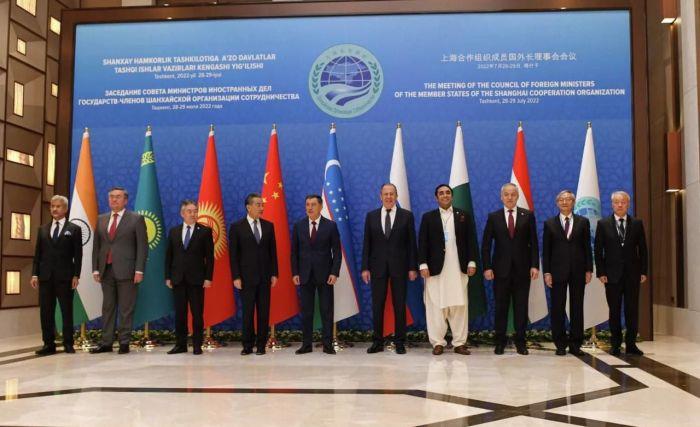(MENAFN- Asia Times) Pakistan-India relations have been at a dead end for years. Now, however, with the Shanghai Cooperation Organization's council of foreign ministers (CFM) meeting to take place in Goa in May, an intriguing debate has ensued: Should Pakistan participate? Can it breathe life into New Delhi-Islamabad ties?
Chances for Pakistan-India Détente It is true that after the South Asian Association for Regional Cooperation (SAARC) became dysfunctional and the United Nations turned into a platform for a never-ending war of words for New Delhi and Islamabad, the SCO gave them the opportunity to interact positively. It also happened that under the watch of the SCO, the arch-rivals participated in the first-ever joint military exercises in 2018 .
However, no breakthrough is possible; there are obvious reasons for that.
The sco's presidency rotates among its members according to the Russian alphabet. This year, india is to preside over the organization and it will continue to do so until September. It is obligatory for India to take care of the administrative side and ensure regular procedural functioning despite its likes and dislikes. Therefore, India sent invitations to all the member states, including Pakistan, to attend the Goa summit in May.
If Pakistan responds to the invitation and decides to join the meet, that too should be viewed in a multilateral context. A spokeswoman for the Pakistani Ministry of Foreign Affairs, Mumtaz Zohra Baloch, clarified that such invitations are“common practice” at multilateral forums.
New Delhi's invitation to Islamabad is coming in a multilateral context, not the bilateral one. The response from Pakistan will be viewed in the same context. This very factor waters down the big hopes of resurrecting the bilateral relations to a sustainable amicability. experts , too, did not place much hope in the possibility of Pakistan-India détente.
Why participate?
Participating in the Goa summit is more about the SCO itself than India.
Pakistan should view this invitation under the purview of the SCO. It should not be viewed from the prism of toxicity that prevails in the bilateral relationship after the government of Indian Prime Minister Narendra Modi unilaterally revoked the special status of Jammu and Kashmir on August 5, 2019. Pakistan's participation will only signal to the founders of the SCO, China and Russia, that it is mature and responsible enough to engage in the multilateral forums.
The times are especially critical now. There is hardly any doubt that the world is in the throes of a huge transformation. At the heart of Eurasia, the SCO indicates the emergence of a parallel regional order that has the potential to transform many global norms in the future. Pakistan should strategize its vision of engagement with SCO countries and maximize its interests in this influential Eurasian platform.
To put it more precisely, Pakistan should view its engagement with the other members of the SCO from a multilateral perspective rather than through the lens of bilateral engagements – particularly with India, where bilateral ties have been at a standstill for a long time. At least the window to peace and cooperation should remain open at multilateral forums such as the SCO.
Many arch-rivals in the past and today as well have given a chance to peace by engaging in economic diplomacy. For instance, the US and China have locked horns with each other but they are still engaged in commerce and trade-related activities. China and Japan followed the same pattern. Even India and China do not block their bilateral channels of communication when it comes to economy.
However, applying this model of cooperation to Islamabad-New Delhi ties will be a far-fetched idea, especially at this point of time when India, because of the coming elections and the Bharatiya Janata Party's ultra-nationalist election manifesto, Pakistan, because of its ongoing economic struggles and internal political issues, is not in a position to take risks. Nonetheless, interaction of Pakistan and India at the platform of SCO is fruitful for both.
This year, India is to preside over the SCO, the Group of Twenty, and the non-permanent members of the UN Security Council. India has to prove itself a responsible state that can build peaceful relations with its neighbors. The world is surely watching. It is for India to rethink its approach on the long-standing disputes with its neighbors.
On February 14, India Today published a speech by the late prime minister of Pakistan, benazir bhutto , in which she appreciated how trade – not conflict – is vital to the region's growth. In the speech, there are many insights into New Delhi's foreign-policy overtures toward its neighbor.
At this point, pakistan needs to craft its narratives very smartly and strategize its vision of engagement at SCO for maximizing its interests.



















Comments
No comment